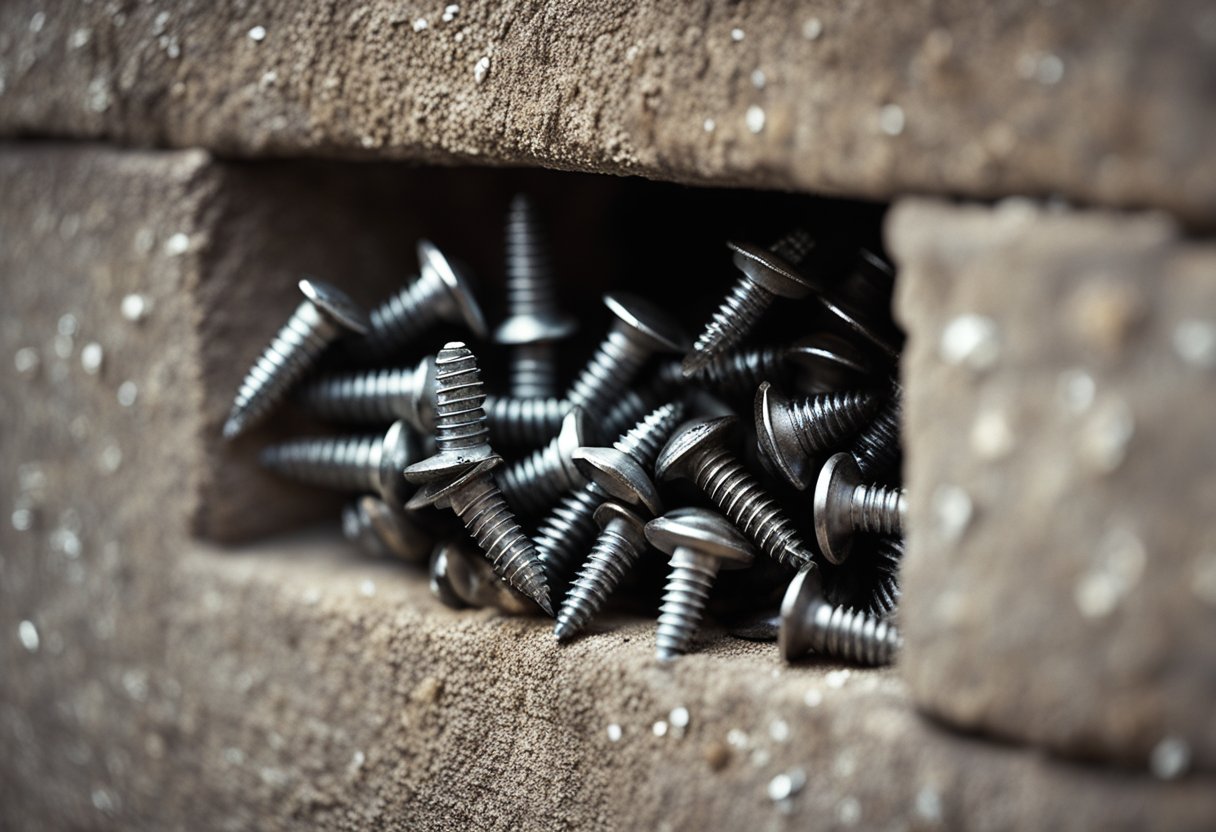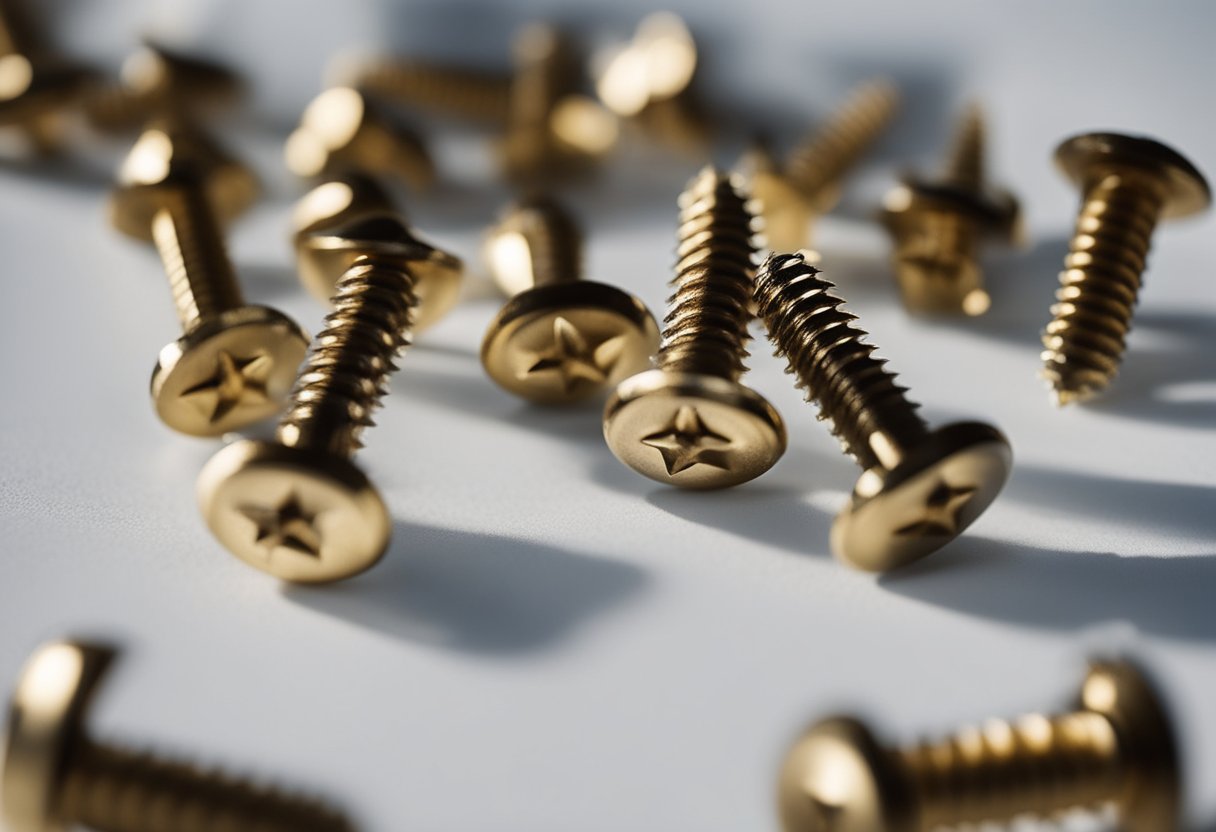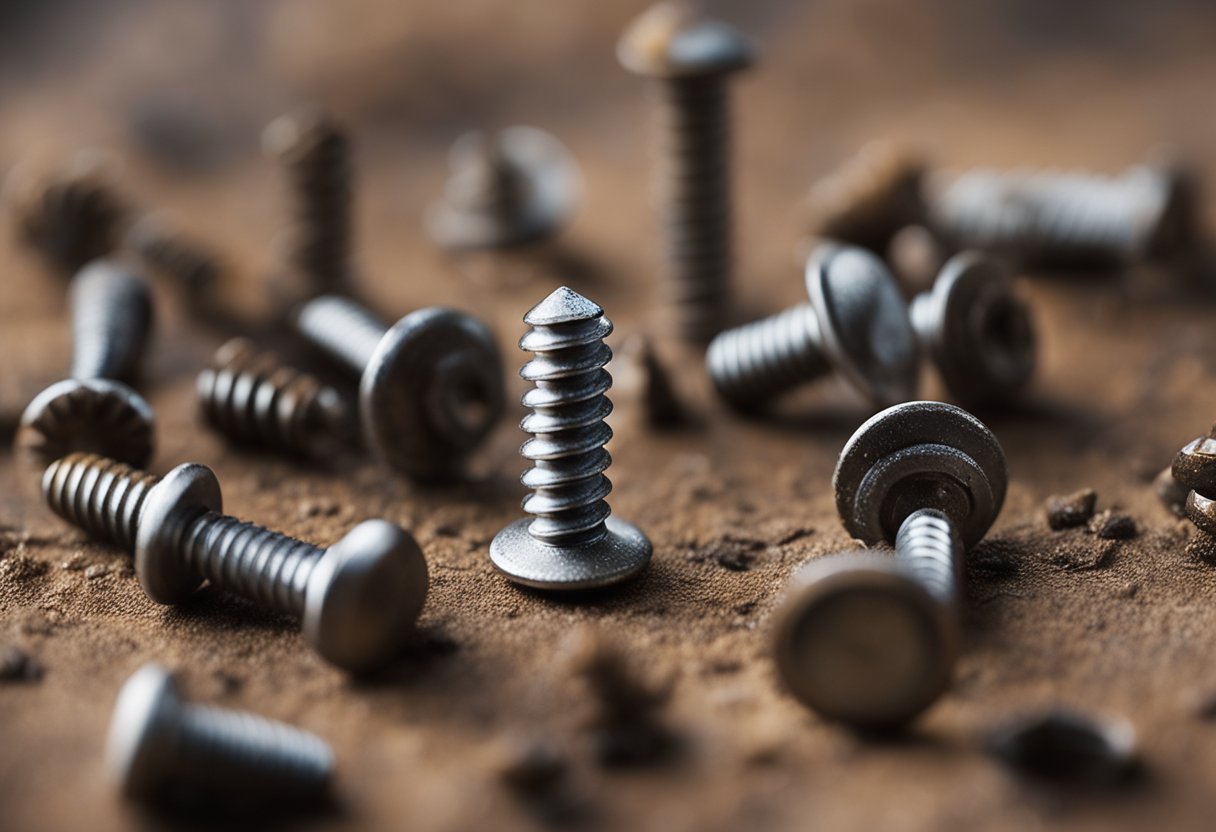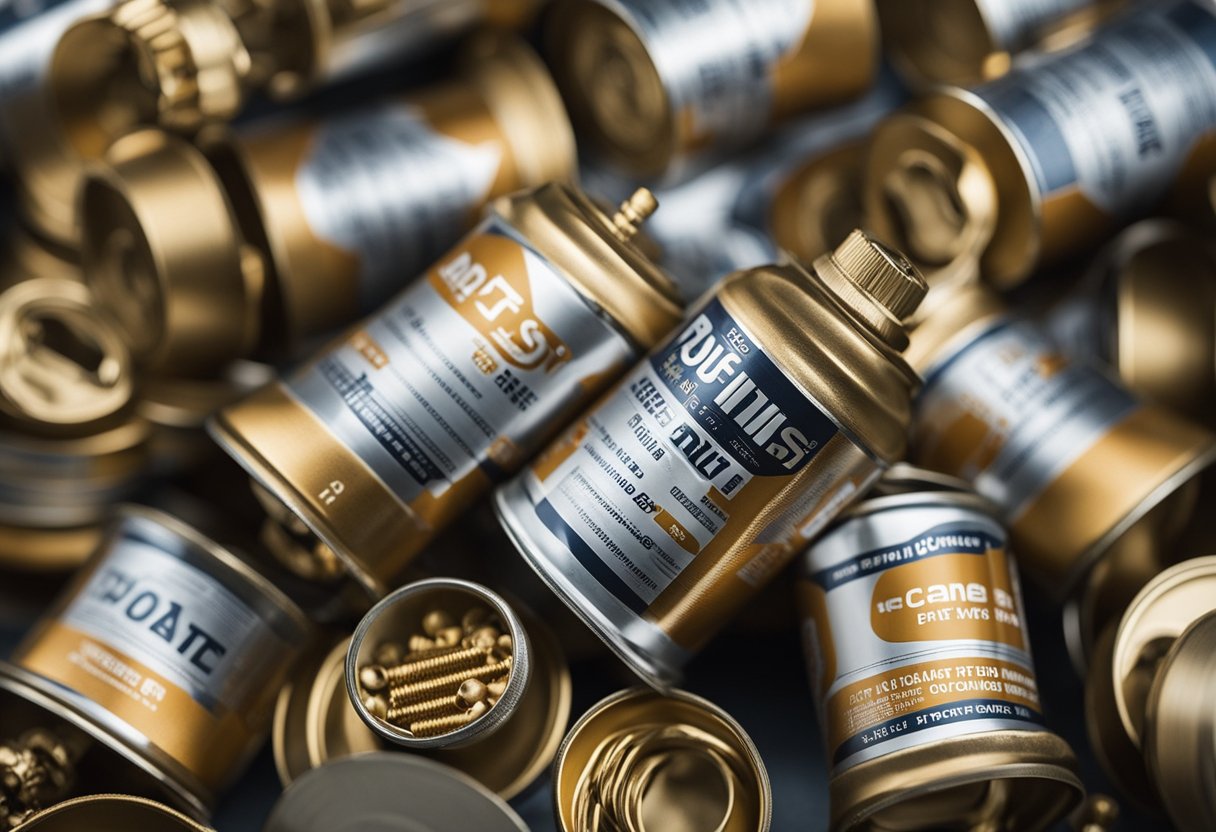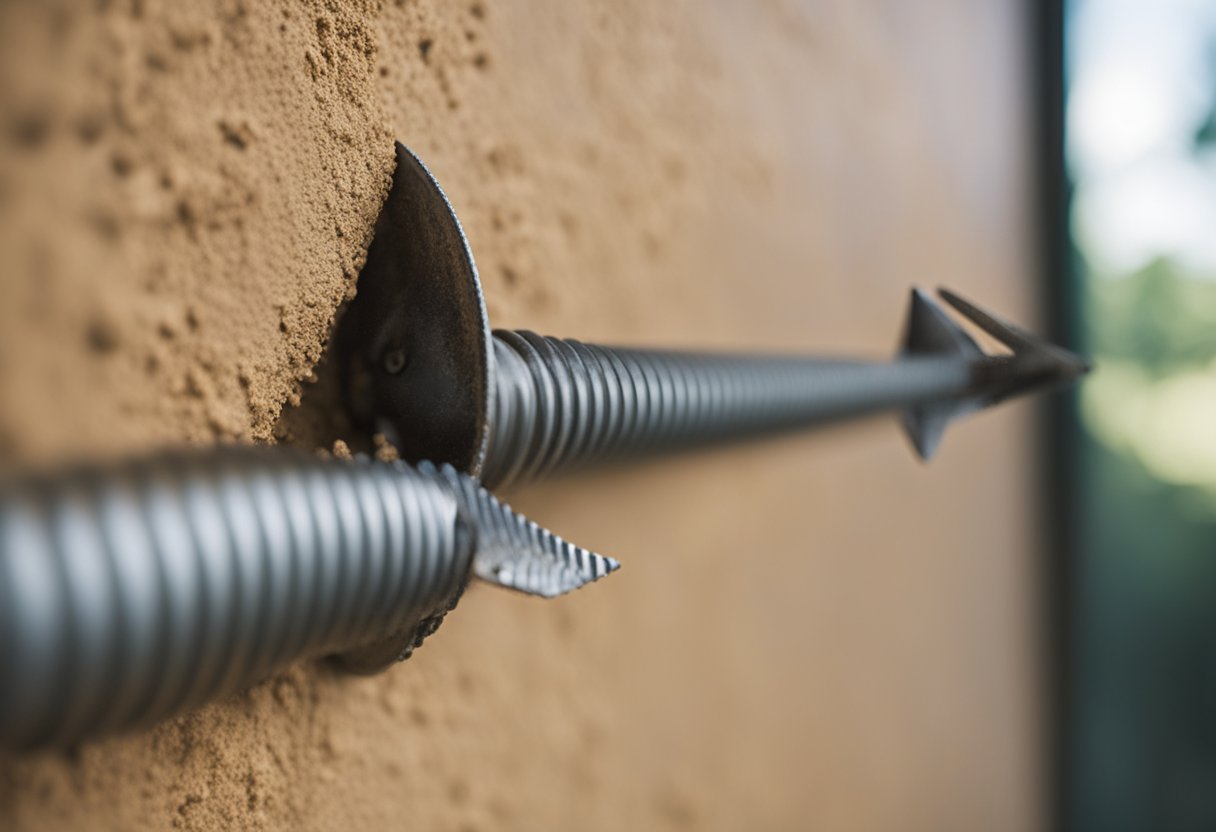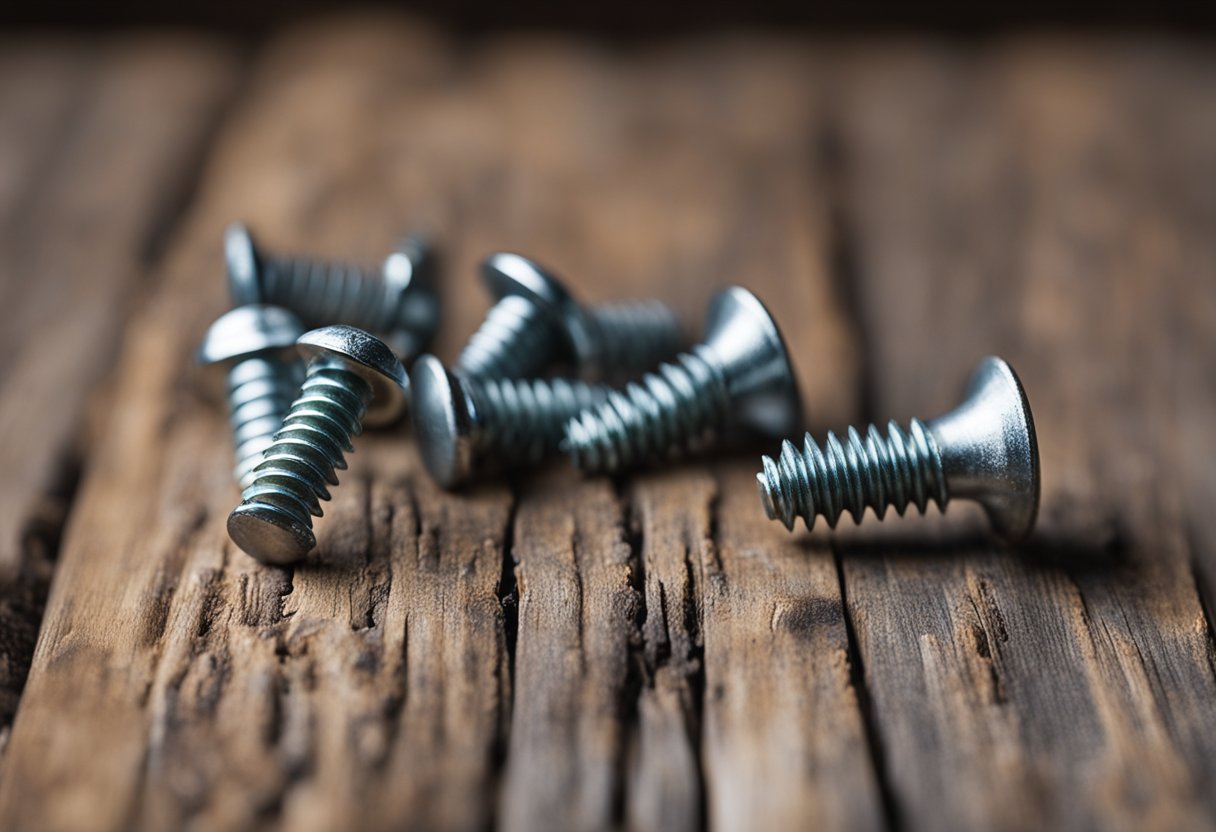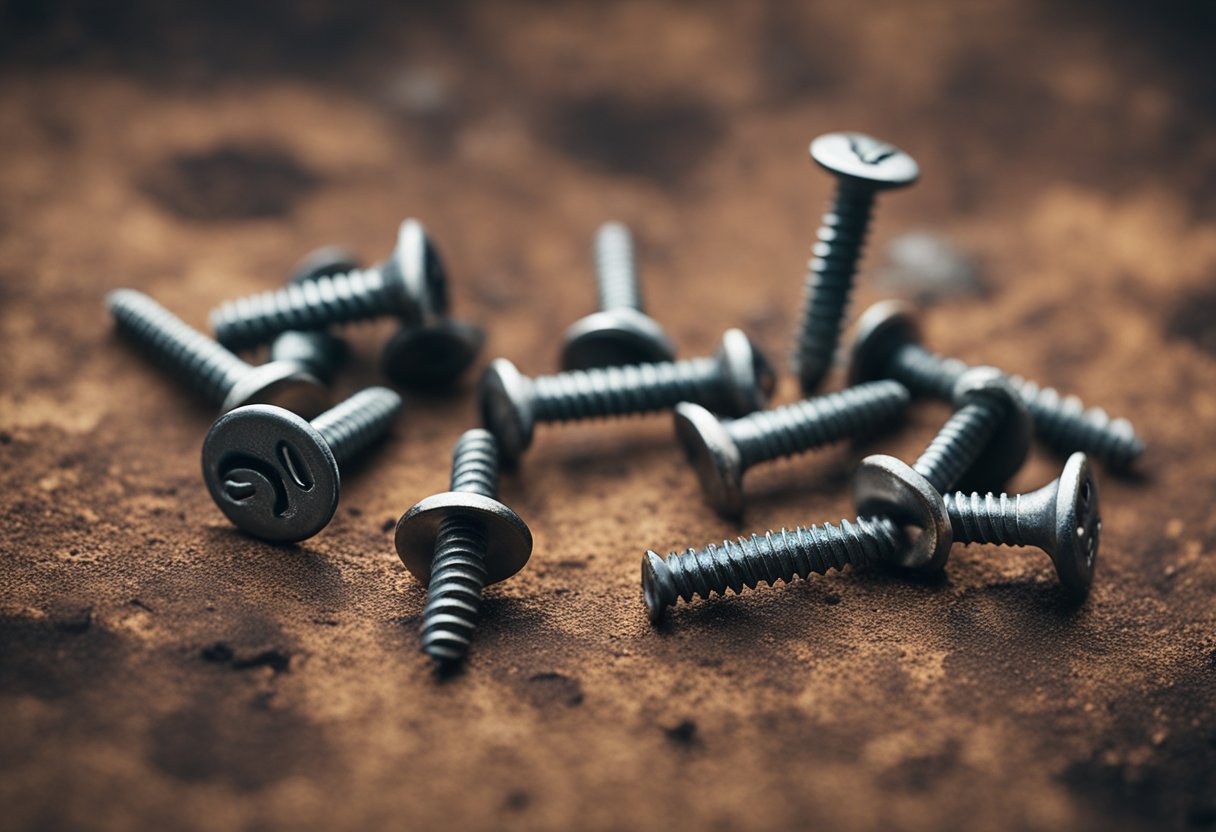Drywall screws are an essential component in any drywall installation project. They are used to secure the drywall to the studs, giving the wall its strength and durability. However, one question that many people have is whether drywall screws rust. The answer is yes, drywall screws can rust, but it depends on a few factors.
Understanding Drywall Screws
Drywall screws are specially designed screws that are used in drywall installation projects. They are made of steel and coated with a layer of zinc to protect them from rust. The screws come in different sizes, lengths, and thread types, making them suitable for different applications. Coarse-thread drywall screws are used for attaching drywall to wood studs, while fine-thread drywall screws are used for attaching drywall to metal studs.
Corrosion and Rusting Process
Corrosion is a natural process that occurs when metal comes into contact with oxygen and moisture. The process leads to the formation of rust, which weakens the metal’s structural integrity and reduces its lifespan. Drywall screws can rust when they are exposed to moisture, such as in humid environments or when they come into contact with water. The rusting process can also occur when the protective layer of zinc on the screw’s surface is damaged or worn away.
Key Takeaways
- Drywall screws can rust when they are exposed to moisture or when the protective layer of zinc on their surface is damaged.
- To prevent rust on drywall screws, it is important to choose the right screws for the job and to install them correctly.
- Regular maintenance and inspection can help identify and address rusting issues before they become a problem.
Understanding Drywall Screws
As a handyman, I know that drywall screws are an essential component for any drywall installation project. These screws are designed to attach drywall to wood or metal studs, and they come in various sizes and types.
One of the most important factors to consider when selecting drywall screws is the gauge number. The gauge number refers to the thickness of the screw, and it ranges from 6 to 10. The higher the gauge number, the thinner the screw. It’s essential to choose the right gauge number for your project to ensure that the screw holds the drywall securely in place.
Another important factor to consider when selecting drywall screws is the thread type. There are two types of threads: coarse and fine-thread. Coarse-thread screws are ideal for attaching drywall to wood studs, while fine-thread screws are better suited for metal studs.
Drywall screws come in different lengths and diameters, and it’s essential to choose the right size for your project. The length of the screw should be at least 1/4 inch longer than the thickness of the drywall. The diameter of the screw should match the size of the hole in the drywall.
Quality is also an important consideration when selecting drywall screws. It’s essential to choose high-quality screws to ensure that they don’t break or strip during installation. Black drywall screws are a popular choice because they are rust-resistant and have a phosphate coating that makes them durable.
In conclusion, understanding the different types of drywall screws, gauge numbers, thread types, lengths, diameters, and qualities is essential for any successful drywall installation project. By choosing the right screws, you can ensure that your drywall is securely attached to the wood or metal studs, and that your project is a success.
Corrosion and Rusting Process
https://www.youtube.com/watch?v=XMr4vse7Ybo&embed=true
As a DIY enthusiast, I have come across several instances where I have seen rust on drywall screws. Rust and corrosion on screws are caused by exposure to water, moisture, and oxygen. The metal surface of the screws corrodes and forms rust spots, making the screws weak and ineffective over time.
Moisture in the air can condense on the drywall metal surface, leading to corrosion and rusting. Even small amounts of water, such as from humidity or liquid spills, can cause rusting over time. Exposure to salt or weather conditions can also accelerate the rusting process.
When a screw starts rusting, it loses its strength and becomes brittle. The rusting screw can break or snap off, causing the drywall to fall off. This is a safety hazard and can cause injury.
To prevent rusting, it is essential to use rust-resistant drywall screws. Zinc-coated drywall screws and black phosphate drywall screws are both rust-resistant and do an excellent job of preventing corrosion. However, it is important to note that rust-resistant screws do not prevent rusting altogether, as some factors are beyond control.
In conclusion, it is crucial to understand the corrosion and rusting process of drywall screws to ensure safety and longevity of the drywall. By using rust-resistant screws and taking measures to prevent exposure to water, moisture, and oxygen, we can prevent rusting and ensure the efficacy of the screws.
Drywall Screws and Rusting
As a handyman, I have worked with drywall screws on numerous occasions. One of the most common questions I get asked is whether drywall screws rust or not. The answer is yes, they can rust. Rust is a natural process that occurs when metal comes in contact with water and oxygen.
Drywall screws are made of steel, which is prone to rusting. However, there are several ways to prevent rusting and keep your drywall screws in good condition. One such method is to use black drywall screws or phosphate-coated screws. Black phosphate coating and zinc coating on drywall screws are an excellent way to prevent rust. Zinc coating works as a sacrificial anode, which means it will corrode before the steel does, preventing rust formation.
It is important to note that even with coatings, drywall screws can still rust under certain circumstances. For example, if the screws are exposed to water for an extended period, they can still rust. This is especially true for outdoor use, where the screws are exposed to the elements.
If you are using drywall screws indoors, you can prevent rust formation by ensuring that the environment is dry and well-ventilated. If you notice any discoloration or rust formation on your drywall screws, it is best to replace them with rust-resistant coated drywall screws.
In conclusion, drywall screws can rust, but you can prevent rust formation by using phosphate-coated or zinc-coated screws. It is also important to ensure that the environment is dry and well-ventilated if you are using drywall screws indoors.
Preventing Rust on Drywall Screws
As a handyman, I have learned that preventing rust on drywall screws is crucial to ensure the longevity of the project. There are several ways to prevent rust on drywall screws, including the use of rust-resistant coatings, such as zinc or black phosphate coating.
Zinc coating is an excellent option for preventing rust on drywall screws. Zinc works as a sacrificial anode, which means that it corrodes before the metal screws do, preventing rust. Zinc-coated drywall screws are typically used for indoor projects, as they are not suitable for outdoor use.
Black phosphate coating is another option for preventing rust on drywall screws. This coating is applied to the surface of the screws to provide anti-corrosion properties. However, like zinc-coated screws, black phosphate-coated screws will eventually rust if exposed to moisture and water.
Another way to prevent rust on drywall screws is by galvanizing them. Galvanization involves coating the screws with a layer of zinc or iron, which provides a barrier against moisture and water. Galvanized screws are commonly used for outdoor projects, such as deck screws, as they are corrosion-resistant.
When installing drywall screws, it is essential to ensure that they are coated with an anti-corrosion material. Coarse thread screws are also recommended, as they provide better grip and are less likely to loosen over time, which can expose the screws to moisture.
Painting over the screws can also help prevent rust. However, it is essential to ensure that the screws are completely dry before painting, as moisture can become trapped under the paint and cause rust to form.
In conclusion, preventing rust on drywall screws is crucial to ensure the longevity of your project. Zinc and black phosphate coatings, galvanization, and coarse thread screws are all excellent options for preventing rust. Additionally, painting over the screws can provide an extra layer of protection.
Choosing the Right Drywall Screws
https://www.youtube.com/watch?v=xWN9YCAfgxo&embed=true
As a handyman, I know that choosing the right drywall screw is crucial for a successful project. Drywall screws come in different types, sizes, and gauges. It is essential to pick the right one for your project to ensure a secure and long-lasting installation.
Firstly, you need to consider the type of drywall screw. There are black drywall screws, metal screws, deck screws, and wood screws. Each type of screw is designed for a specific purpose and material. For instance, metal screws are ideal for metal studs, while wood screws are perfect for wood studs.
Next, you need to consider the thread type. Drywall screws come in coarse and fine threads. Coarse threads are suitable for wood studs, while fine threads are ideal for metal studs. It is essential to choose the right thread type to ensure a secure and tight fit.
Gauge and diameter are also crucial factors to consider when choosing the right drywall screw. The gauge number indicates the thickness of the screw, while the diameter refers to the size of the screw’s shank. It is essential to choose the right gauge and diameter to ensure that the screw fits snugly and securely.
Quality is another crucial factor to consider when choosing the right drywall screw. It is essential to choose high-quality screws to ensure that they do not break or strip during installation. U.S made screws are generally of higher quality than imported ones.
Lastly, you need to consider the point of the screw. Drywall screws come in different points, such as sharp, blunt, and self-drilling. It is essential to choose the right point to ensure that the screw can penetrate the material without damaging it.
In conclusion, choosing the right drywall screw is crucial for a successful project. By considering factors such as type, thread type, gauge, diameter, quality, and point, homeowners can ensure a secure and long-lasting installation.
Installation and Maintenance
As a homeowner, it’s essential to understand how to install and maintain drywall screws to prevent rust and ensure their longevity. When installing drywall screws, it’s crucial to use the right type of screw for the job. For indoor projects, use standard drywall screws, while for outdoor projects, use screws that are resistant to rust and corrosion.
It’s also important to ensure that you’re screwing into studs or joists and not just the drywall itself. Screwing into the drywall can cause the screws to loosen over time, leading to cracks and damage to the wall.
To remove rusted screws, apply a product like WD-40 that will help dissolve the corrosion on and around the screw. You can also use household items such as hydrogen peroxide, lemon juice, or cola. Gently tap the head of the screw with a hammer to loosen it, then use pliers or a screwdriver to remove it.
Humidity can also cause drywall screws to rust over time. To prevent this, ensure that the room is adequately ventilated and that the humidity levels are kept to a minimum. If you’re painting over drywall screws, it’s essential to use a primer to prevent the screws from rusting under the paint.
When installing drywall screws into wood studs, it’s important to pre-drill the holes to prevent the wood from splitting. For metal studs, use screws specifically designed for metal framing.
By following these simple installation and maintenance tips, you can ensure that your drywall screws remain rust-free and maintain their integrity over time.
Wrap Up
In conclusion, drywall screws can rust if they are not properly coated or exposed to moisture. Zinc and black phosphate coatings are excellent ways to prevent rust, but they are not foolproof. Over time, these coatings can wear down, leaving the screws vulnerable to rust.
As a homeowner, it is important to choose the right type of drywall screw for your project. Outdoor projects require screws that are resistant to rust and corrosion, while indoor projects can use screws that are not as resistant.
To prevent rust, it is important to properly install drywall screws. This means using the correct size and spacing, as well as ensuring that the screws are flush with the surface of the drywall.
Finally, to ensure the longevity of your drywall screws, it is important to store them properly. Keep them in a dry place and away from moisture.
Overall, while drywall screws can rust, there are steps you can take to prevent it. By choosing the right type of screw, properly installing them, and storing them correctly, you can ensure that your drywall project will last for years to come.
Frequently Asked Questions
Are phosphate coated screws rust resistant?
Phosphate coated screws are rust-resistant to some extent. They are designed to provide a layer of protection against rust and corrosion. However, they are not completely rust-proof and may eventually rust over time. It is important to note that the level of rust resistance may vary depending on the type of phosphate coating used.
Do drywall screws rust on ceiling?
Drywall screws may rust on a ceiling if they are exposed to moisture or humidity. This can happen if there is a leak in the roof or if the ceiling is not properly insulated. Rust can cause the screws to weaken, which can lead to the ceiling collapsing. It is important to use rust-resistant screws when installing drywall on a ceiling.
Can you use phosphate coated screws outside?
Phosphate coated screws are not suitable for outdoor use as they are not designed to withstand the elements. Outdoor screws need to be rust-resistant and able to withstand exposure to water and other elements. It is important to use screws that are specifically designed for outdoor use when working on outdoor projects.
Are stainless steel drywall screws rust resistant?
Stainless steel drywall screws are rust-resistant and are a good choice for projects that require screws that can withstand exposure to moisture and humidity. These screws are made from a corrosion-resistant material that provides long-lasting protection against rust and corrosion.
Where should you not use drywall screws?
Drywall screws should not be used in applications where they will be exposed to moisture or humidity. This includes outdoor projects, bathrooms, and kitchens. When exposed to moisture, drywall screws can rust and weaken, which can lead to structural damage and safety hazards.
How long will drywall screws last outside?
Drywall screws are not designed for outdoor use and will not last long when exposed to the elements. The screws will rust and weaken over time, which can lead to structural damage and safety hazards. It is important to use screws that are specifically designed for outdoor use when working on outdoor projects.

Hi, I’m Sal Muller of Tooltrip.com. My DIY experience led me to understand essential power tools for home projects. Tooltrip.com guides enthusiasts and professionals in choosing right tools for any job. I provide concise top tool reviews for easier, efficient DIY.

